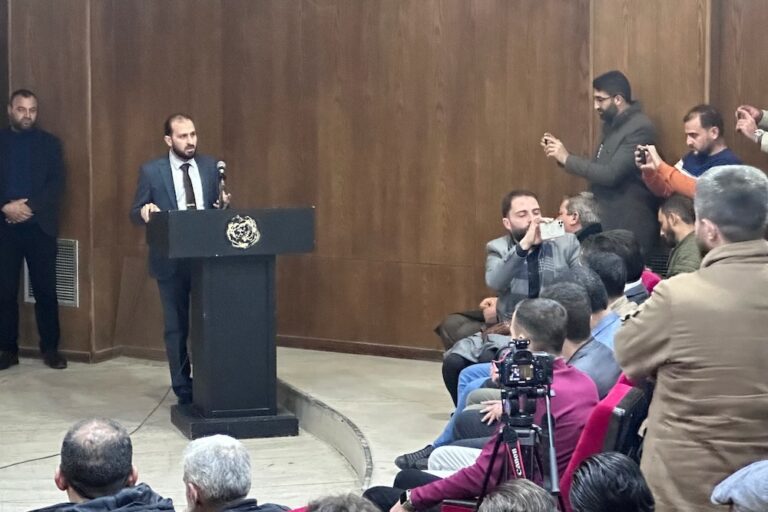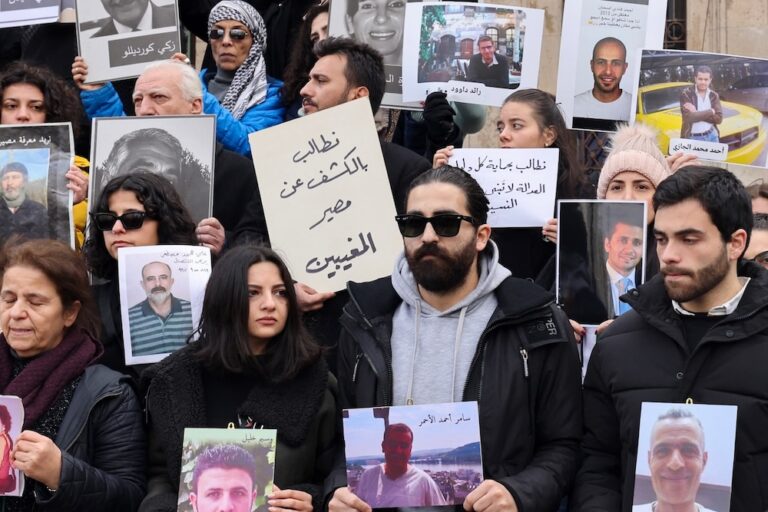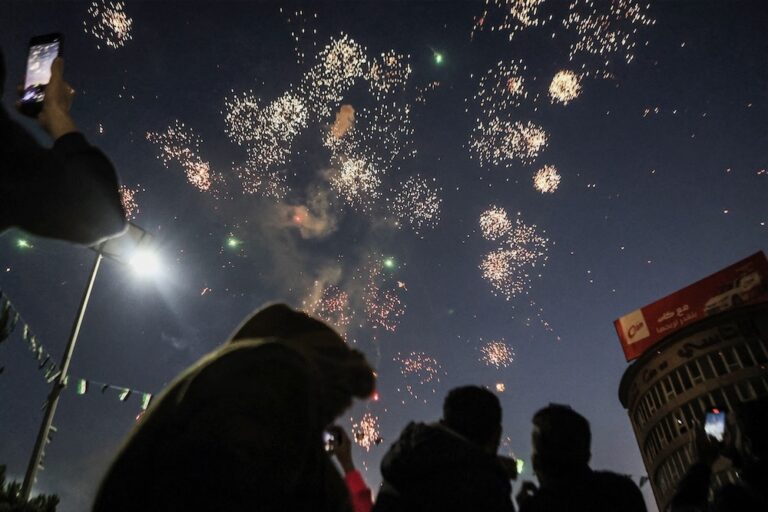The authorities have demonstrated with gunfire and bloodshed that their promise to allow the UN to conduct a humanitarian mission without hindrance is hollow, says Human Rights Watch.
(Human Rights Watch/IFEX) – New York, August 24, 2011 – The UN humanitarian assessment mission in Syria should demand guarantees from the government that security forces will fully respect the right to peaceful assembly in areas the UN team visits, Human Rights Watch said today.
Shortly after the UN mission left the area on August 21, 2011, security forces opened fire on protesters gathered near the Clock Tower Square in Homs. The protesters had gathered as the UN convoy drove by to draw attention to their plight by carrying banners that read “SOS” and “We will never stop until we get our freedom.” Witnesses told Human Rights Watch that security forces killed three peaceful protesters gathered near the square, and a fourth succumbed to his wounds shortly thereafter. A witness who visited some nearby private hospitals told Human Rights Watch that he knew of six wounded taken to al-Barr Hospital, four to Bab Sba’ hospital, and one to ‘Ummali hospital.
“Syria has demonstrated with gunfire and bloodshed that its promise to allow the UN to conduct a humanitarian mission without hindrance is hollow,” said Sarah Leah Whitson, Middle East director at Human Rights Watch. “The UN needs to get cast-iron guarantees that this will not happen again.”
A Homs witness told Human Rights Watch that the security forces were 25 meters away from the protesters when they opened fire, both in the air and at the protesters. “I saw a protester die a few meters away,” he said. “Blood was gushing from his head. I think he died on the spot.”
Syria allowed the UN team to visit some centers of the protests and repression to assess humanitarian needs, and had promised unhindered access. Anti-government activists had expressed concern to Human Rights Watch that the authorities would only take the UN team to pro-government areas.
“We learned that the UN team was coming to our city,” a Homs-based activist told Human Rights Watch, “so we organized a protest to tell them to visit our neighborhoods and not those that the government picks.”
A UN spokesman, Farhan Haq, told reporters in New York that “a protest situation developed” in Homs during the team’s visit “and the mission was advised to leave for security reasons.” He added that, “The mission did not come under fire.”
One protester told Human Rights Watch, “after they left, the security forces opened fire on us.”
Another activist based in Rastan, a town near Homs that suffered heavy fighting during the past few weeks, expressed disappointment that the UN team would not be visiting that site.
“The UN should insist that Syrian authorities allow it unhindered and independent access to the protest areas,” Whitson said. “Otherwise the mission risks being perceived as a government-sponsored guided tour.”
Local activists posted multiple videos on YouTube apparently showing some of the day’s events. A Homs resident who reviewed the footage with Human Rights Watch confirmed that the footage was from Homs. In one video clip, a group of peaceful protesters, including a man in a bright turquoise shirt are walking toward the clock tower, where a group of security forces are standing. When the protesters are about 20 meters away from the security forces, gunfire is heard and the man in the turquoise shirt is seen being pulled away by other marchers with what appears to be a wound to the head.
In other footage, protesters on a side street near the clock tower are heard chanting anti-government slogans when suddenly the sound of gunfire erupts, and protesters are seen pulling away two wounded protesters. None of the protesters in the footage are carrying any weapons, and there is no evidence that they presented any threat to security forces.
“Just last week, President al-Assad was telling the UN Secretary-General that policing operations had stopped, and now Syrian forces are firing on protesters practically under the UN’s nose,” Whitson said. “The Security Council should need no further evidence that stronger steps need to be taken to convince Syrian authorities to change their course.”
In Geneva, the UN Human Rights Council today authorized the creation of a Commission of Inquiry to investigate violations of human rights since March 2011. The Security Council should put its weight behind that initiative, and insist that Syria cooperate with the commission, which will be appointed by the president of the Human Rights Council. Human Rights Watch has also called upon the UN Security Council to impose an arms embargo and targeted sanctions and travel bans against Syrian officials responsible for ongoing grave human rights abuses.
Protests erupted in other parts of Homs following the shootings near the clock tower. Residents reached by Skype reported that protests took place in Bab Sba’, Bab Dreeb, and al-Meedan neighborhoods and that security forces redeployed armored vehicles around much of the city after having withdrawn them ahead of the UN visit.
Later that evening, witnesses told Human Rights Watch, security forces and pro-government armed groups, referred to locally as shabeeha, dispersed groups of residents who had begun a protest when they left mosques after the taraweeh, an evening prayer performed during Ramadan. In al-Wa’er neighborhood, a local resident said that shabeeha and security forces opened fire on people gathered there, killing Ala’ Abu al-Laban and his two-year old son, Majd.
Another resident, who attended prayers at the al-Arabiss mosque, near Jouret al-Shiyah, told Human Rights Watch, “We were leaving the mosque after taraweeh prayer when three buses of the security forces arrived. I couldn’t see what type of security forces. They threw two sound bombs and people dispersed. Then we heard shootings coming from Jouret al-Shiyah, a block away from the mosque.”


